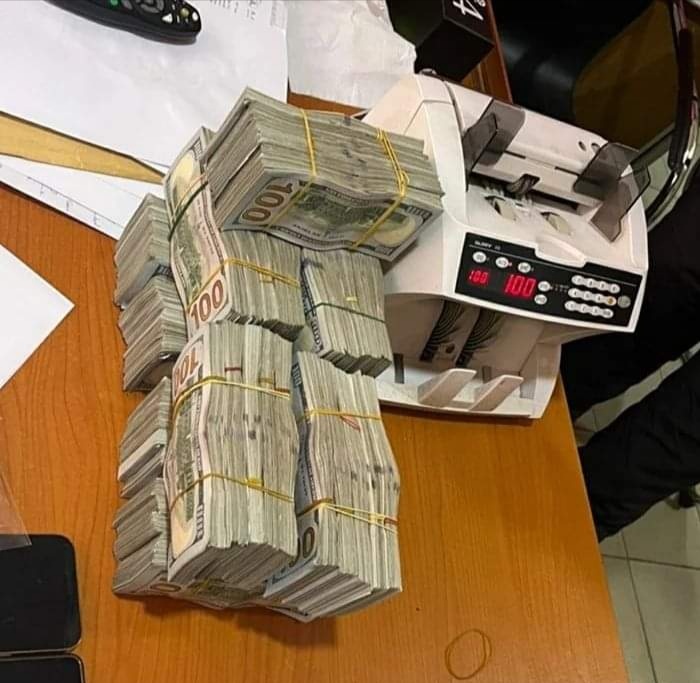Business
Naira strengthens to N1,455 per US dollar as foreign reserves climb to $43bn

The Nigeria’s currency, naira, extended its positive run on Thursday, trading at N1,455 to the United States dollar on the Nigeria Foreign Exchange Market (NFEM), while the parallel market saw rates between N1,460 and N1,470 to the dollar.
The rally comes amid a slowdown in foreign exchange speculation and a narrowing gap between official and unofficial markets.
Analysts link the local currency’s performance to a surge in Nigeria’s external reserves, now at $43.05 billion, as well as the impact of the Central Bank of Nigeria’s (CBN) reforms that have boosted investor confidence.
“A country’s currency is an instrument of her pride. For the Nigeria naira, a turbulent past that saw it lose its significant value is almost over,” analysts observed.
CBN Governor Olayemi Cardoso recently confirmed reserves stood at $43.05 billion as of September 11, compared with $40.51 billion at the end of July, giving an import cover of 8.28 months. He also noted that the current account balance recorded a surplus of $5.28 billion in the second quarter of 2025, up from $2.85 billion in the first quarter.
The apex bank has been supplying liquidity to end users, curbing market distortions, and ensuring stricter compliance with FX regulations. This, combined with inflows from foreign portfolio investors (FPIs) and international oil companies (IOCs), has helped stabilize the currency and attract new capital.
A Bureaux De Change operator in Lagos, Garuba Sarki, said many dealers have lost funds as rates narrowed.
“I know some BDC operators that sold dollars below the purchasing rate. This is expected to continue in the weeks ahead. Also, the expected dollar inflows to the economy will help strengthen the naira position against the dollar,” he said.
Head of Research at Commercio Partners, Ifeanyi Ubah, said rising reserves and reduced speculation are supporting optimism in the market.
“Nigeria’s rising external reserves are reflecting a healthier external position for the country. With reserves strengthening, speculative activity subsiding, and oil earnings supporting inflows, many market watchers believe the naira’s current rally has a stronger foundation compared to previous cycles of volatility,” he explained.
Still, some experts urge caution, stressing that sustainability will depend on fiscal discipline, higher crude output, and diversifying exports.
The President of the Association of Bureaux De Change Operators of Nigeria (ABCON), Aminu Gwadabe, said policies such as the FX Code and reforms promoting foreign direct investment are keeping speculators in check.
“The FX Code represents a decisive step forward, setting clear and enforceable standards for ethical conduct, transparency, and good governance in our foreign exchange market. The era of opaque practices is over. The FX Code marks a new era of compliance and accountability,” Cardoso said at the launch of the framework.
As part of measures to shore up remittances, the CBN recently introduced two new diaspora-focused products: the Non-Resident Nigerian Ordinary Account and the Non-Resident Nigerian Investment Account. The products aim to ease remittances, encourage investments, and promote financial inclusion.
“The Central Bank of Nigeria is pleased to inform the general public of the introduction of the Non-Resident Nigerian Ordinary Account and Non-Resident Nigerian Investment Account targeted at Nigerians in diaspora,” the bank said.
These accounts will allow inflows from salaries, allowances, and dividends, while also creating opportunities for investments in bonds, fixed deposits, equities, and government securities.
According to Mohamed Touhami el Ouazzani, Regional Vice President for Africa at Western Union, remittances play a transformational role.“In 2023 alone, $90 billion flowed into Africa from its global diaspora, an amount that rivals the Gross Domestic Product of the entire region,” he said.
He added that remittances are more than financial transfers: “Families with a breadwinner working abroad depend on these funds to provide vital support for day-to-day needs. They also build the foundation for broader financial stability.”
(DAILY TRUST)






















